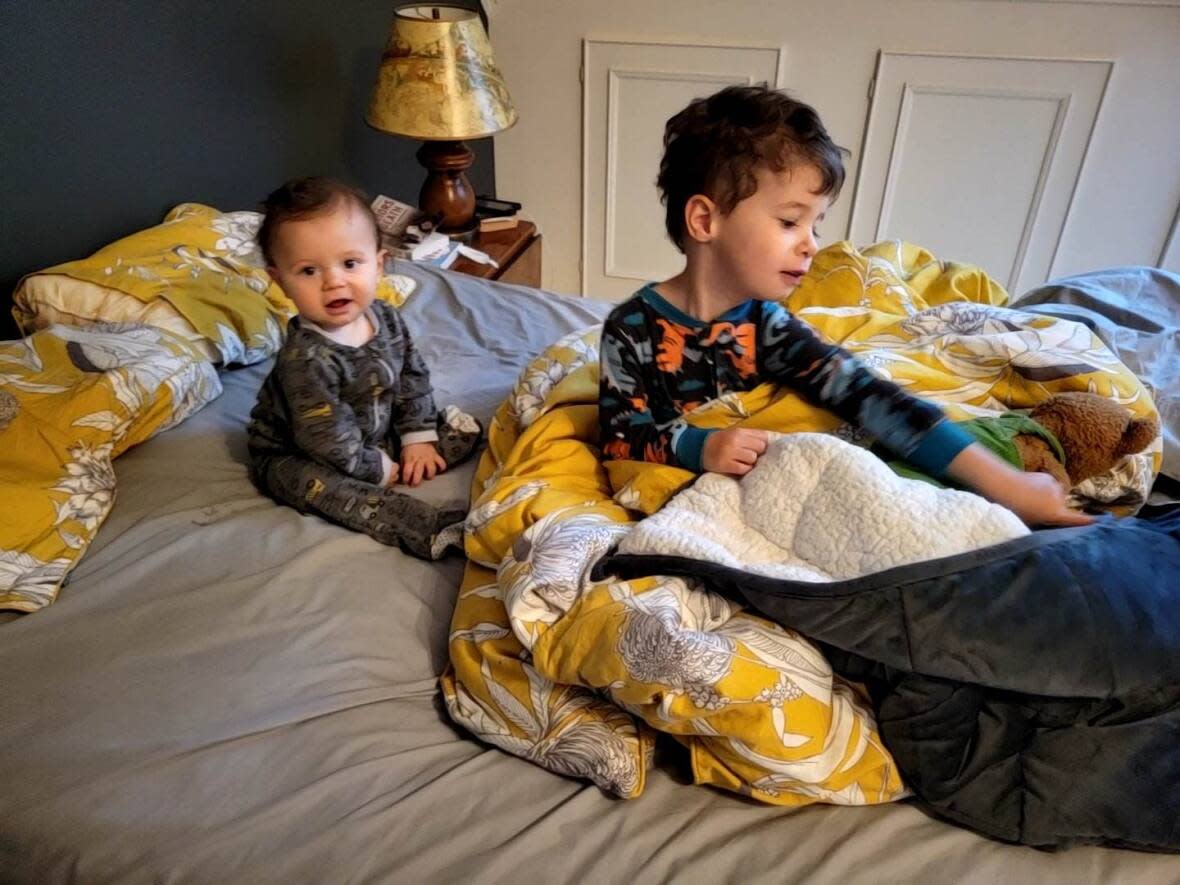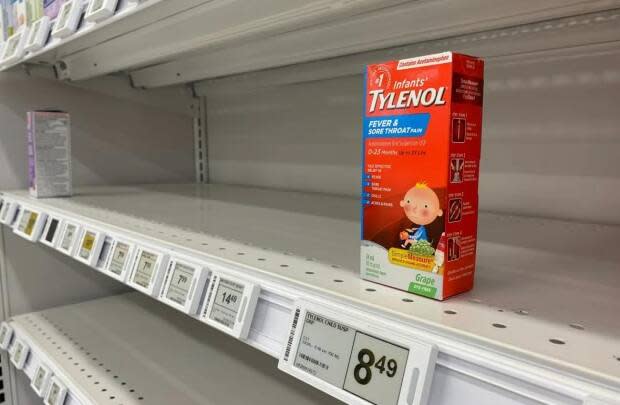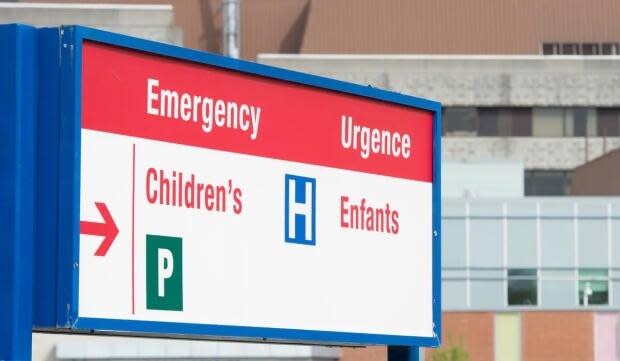'We're drowning': parents of young kids say Quebec's health-care system has failed them

Esther is used to her kids getting sick — it comes with the territory when you have two toddlers at home.
What she's not used to is the helplessness she feels whenever they do. When her youngest contracted respiratory syncytial virus (RSV), she called the 811 hotline in the middle of the night. The nurse suggested she go to an emergency room.
Esther said she was there for over six hours, holding her son in her arms as his breathing got worse. (CBC News has agreed to withhold Esther's last name, over concerns speaking could impact the family's employment opportunities.)
"It's just so horrible. And you're scared — you're holding your baby terrified," she told CBC. "No doctors are going to see you. If they do see you, it's just for two seconds because they're just so overtired or understaffed."
"You just kind of feel like you're on your own out here."
It's a sentiment shared by many parents across the province. With emergency rooms overflowing, basic fever medicine and antibiotics difficult to come by and thousands still waiting for a family doctor, many families say there's no help when things go wrong.
"You develop this pretty intense anxiety about [your kids] getting sick and what that might mean," Esther said.
Parents speak out
Elizabeth Landry knows that anxiety well. With two young kids of her own, she said every cough or sneeze can kick off a downward spiral, where she imagines every what-if scenario.
"Do we need Advil? Because we can't find any. If we can't find any Advil, what are we going to do?" she said, as an example.
"What if it turns into an ear infection? We can't find a doctor. If we can't find a doctor, what are we going to do? If we find a doctor that gives us a prescription… then we can't even find anywhere that could fill in that prescription, what are we going to do?"
It's not what she imagined having kids would be like, she said.
"I thought that there is a village," she said. "Social media will kind of help you find answers when you're weary. But it's not the village you're anticipating."
Gwylan Goddard, who was six months pregnant when the pandemic hit in February 2020, said she's still waiting for the light at the end of the tunnel.
"That's the biggest downer for me right now," she said. "You come through [the pandemic] and expect a little more positivity. And there hasn't been that. It's just been all these other negative results of what these last two years have brought on."

Jeremy Wexler, a psychotherapist and family therapist based in Montreal, says the lingering effects of the pandemic — plus the new challenges facing parents — are showing up in his clients.
"It is scary to imagine going to try to get medical help for your kid, and it being slow and laborious and difficult — and I think that is a real problem," he said.
Government says help is coming
Wexler said he tries to remind parents that when you're imagining the worst, "there are other possibilities here, including: 'my kid is going to do OK.'"
"It's important to remember that, as overwhelmed as our medical system is, kids are still getting seen," he said.
The province's Health Ministry also acknowledges that things are hard for parents right now.
In a statement to CBC, it said "the next few weeks will continue to be difficult" as respiratory viruses continue to circulate into the holiday season, but said the situation "is not unique to Quebec."
The ministry pointed to recent initiatives — including a new provincial crisis management unit and a dedicated pediatric line on the 811 nursing service — as ways it's working to address the crisis.
"Our goal is that all Quebecers, and especially our children, can have access to the quality health care they deserve."
But Goddard said she is worried about how long those fixes will take.
"I know that the government says … we're going to do this and that, but you know, it's slow. It's a slow process," she said, saying the problems are still being "felt big time."
As for Landry, she said she doesn't think Quebec's priorities are in the right place, pointing to the recent cost of living money transfers as an example.
"The government's giving us more money. Whoopee," she said with a sigh. "I don't want more money. I want to sleep well at night knowing that … if they're sick they can be tended to."

Hitting the pause button
In the end, all three women — Esther, Landry and Goddard — said the current situation has made them reassess if they want to have more kids.
Landry said that if someone was on the fence about having kids right now, she would understand why they would look at the state of things and decide to hold off.
"For us, we have two boys and it's, you know, do we want a third? If things were easier, maybe," Landry said. "But we're drowning, so there's no way."
Goddard said none of the problems keeping her from having kids are going away soon.
"I'm aging. Not that I'm old, I'm 34, but I don't want to wait too long to have another child," she said.
Esther said that if things were better in Quebec, she also would be leaning toward having another kid.
"But I'm just scared to, here. I'm completely afraid," she said.
Instead, Esther said she and her husband have already looked into moving out of the province. If they do, she said she'd probably want another child.
Esther said that having children and being a parent is a beautiful thing — but she did have one piece of advice for those considering taking the plunge.
"I would never tell someone to not have a child, but just — pay attention to what's going on in your area. Question if your area, or where you live right now, is the right place," she said.
"That does make a big difference."


